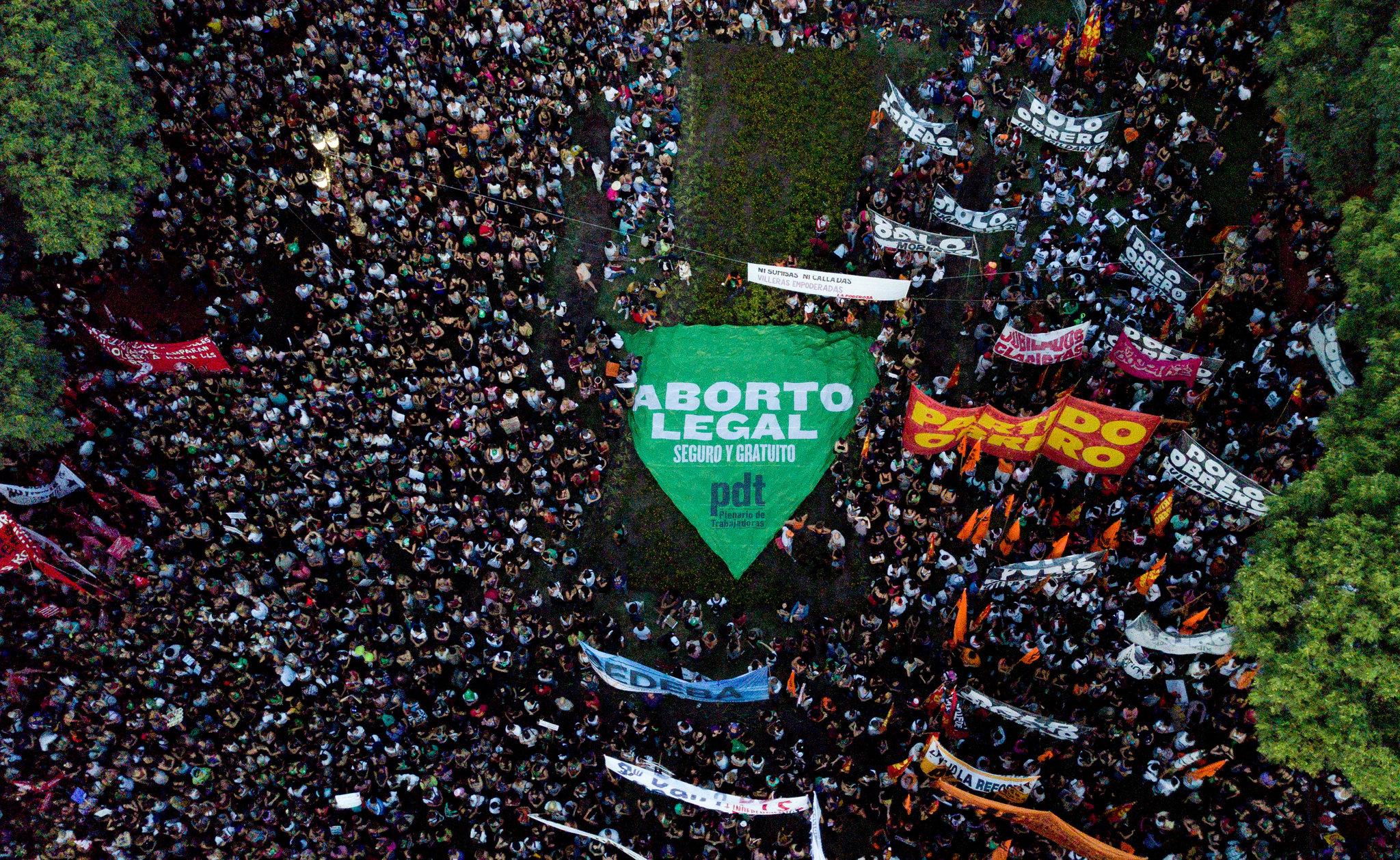Legal abortion in Argentina may become a reality this year thanks to lawmakers and activists who have been fighting for decades to frame abortion as a human right. In Argentina as in many countries in Latin America, abortion is legal only if the pregnancy was caused by rape, the mother’s health is at risk, or if the fetus has congenital birth defects. If a woman seeks an abortion outside of these parameters, she can be fined or jailed.
In 2014, three Argentinian women were incarcerated for issues related to abortion – one for having an abortion and two for helping their friend. Susana D. went to the hospital for abdominal pain caused by sepsis, which is a blood infection, and her doctor suspected her illness was caused by abortion. He reported her to the police and she was arrested for “the homicide of a blood relative.” Susana could not access the care she deserved. This justification of criminalizing women who seek healthcare contributes to the ongoing state violence against women in Latin America.
Amnesty International’s Secretary General, Shalil Shetty, argues that Argentina’s criminalization of abortion is violence against women. “[Criminalization] doesn’t reduce abortions – it just makes them unsafe,” Shetty shared in an interview with the Guardian. We know that while punishing people who have abortions will not reduce the procedure, it does jeopardize women’s health by limiting safe access to abortion care. Often women will go to unlicensed medical professionals or attempt to do the procedure themselves, and when complications occur (as they often do), are hesitant to seek hospital care for fear they will be arrested. According to the Argentine government, there are between 370,000 and 522,000 illegal abortions every year, making up about one-third of maternal deaths nationwide and nearly 60,000 hospitalizations.
In March, Argentina’s Congress launched public hearings to decide whether or not to legalize abortion up to 14 weeks. Activists in February demonstrated on the streets, and momentum accelerated when President Mauricio Macri publicly stated in response that he would not veto the bill if Congress were to to legalize abortion. “As I’ve said more than once, I’m pro-life, but I’m also in favor of the mature and responsible debates that we owe ourselves as Argentines,” Macri stated.
The effort to pass this abortion bill is seen by many as an extension of the Argentine campaign to end gender-based violence, Ni Una Menos. Originally sparked by the murder of a teenager, Daiana García, the movement’s goal is to hold government accountable to fighting ending femicide and violence against women.
The bill itself was introduced in the the lower house of Argentina’s Congress, and women lawmakers responded to overwhelming public support to ensure the bill is also supported in the upper house. Over the next two months, a special commission will meet on a bi-weekly basis to consider the abortion bill.
Feminist activists hope that this bill will both legalize abortion up to 14 weeks and begin to shift the conversation around the importance of abortion access from a morality issue to a public health concern. Even under current Argentine law, women seeking legal abortions face stigma from medical professionals and community members. Activists hope that this new bill would not only provide legal protection for women seeking abortions, but begin to normalize this life-saving and safe procedure.
Shalil Shetty reminds us that global mobilization can catalyze the change we want to see: “In the era of #NiUnaMenos, #MeToo and the huge momentum for women’s rights across the world…Argentina could send a powerful signal by taking the historic step of decriminalizing abortion, setting an important example to its neighbours.”
While an abortion bill passing may be a long shot, grassroots activism coupled with allies in government might be a recipe for progressive change in Latin America. Here’s to hoping that Congress members will vote in favor of decriminalizing women and supporting their ability to choose what’s best for their health.
Image Header: Tomas F. Cuesta/Associated Press

Join the Conversation